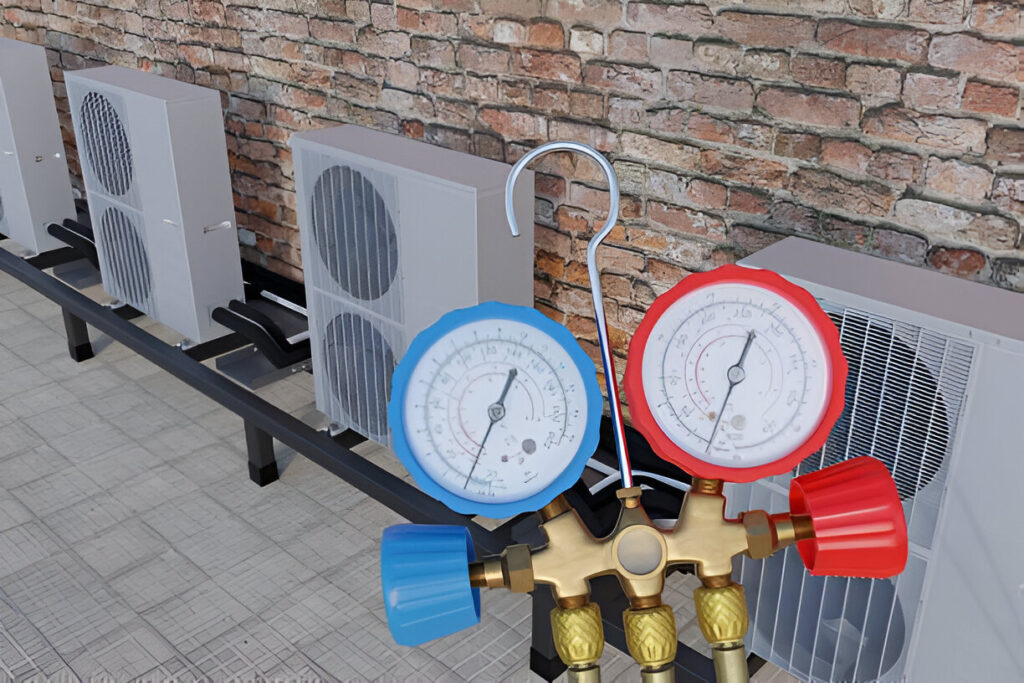Key Takeaways:
- Heat pumps offer an efficient heating solution in cold climates.
- Understanding their benefits, including cost savings and eco-friendliness, can enhance living conditions.
- Various types of heat pumps have unique applications.
- Awareness of real-life examples and maintenance tips helps in making informed decisions.
Table of Contents:
- Introduction to Heat Pumps
- The Benefits of Heat Pumps in Cold Climates
- Different Types of Heat Pumps
- How Heat Pumps Save You Money
- Eco-Friendly Advantages of Heat Pumps
- Real-Life Applications and Success Stories
- Tips for Maintaining Your Heat Pump
- Future Trends in Heat Pump Technology
Introduction to Heat Pumps
A key component of contemporary climate management is heat pumps, which are handy in areas that suffer from extreme cold. These machines function similarly to air conditioners in reverse, transferring heat instead of creating it through combustion. This novel idea dates back to the 19th century when trailblazing inventors looked for workable solutions to capture the warmth of the surroundings. These early models have evolved into today’s incredibly effective systems over the years due to improvements in both design and functionality. Modern heat pumps’ growing popularity and essential importance in residential and commercial heating settings can be attributed to their utilization of renewable energy sources.
The Benefits of Heat Pumps in Cold Climates
Implementing a cold climate heat pump installation offers numerous benefits, particularly in regions prone to long, harsh winters. Unlike conventional heaters, which need to combust fuels to generate warmth, heat pumps efficiently absorb and transfer heat from external sources, functioning effectively even as temperatures plummet. This capability ensures steady indoor comfort and reduces the energy bills typically associated with heating. By maintaining a stable home environment, heat pumps contribute significantly to improving both living standards and energy efficiency, an advantage that resonates well with homeowners and businesses alike.
Different Types of Heat Pumps
The array of heat pump types available provides flexibility to suit varying household and environmental needs. Air-source heat pumps are perhaps the most accessible, working by extracting warmth from ambient air, even when it seems counterintuitive due to the cold. Geothermal or ground-source heat pumps tap into the earth’s stable underground temperatures, offering superior efficiency at a premium installation cost. Then, there are hybrid systems that smartly blend these approaches, optimizing resource use across multiple climates. Choosing the right type involves understanding your specific climatic conditions and usage requirements and ensuring that the heat pump meets and exceeds your expectations regarding efficiency and effectiveness.
How Heat Pumps Save You Money
Although the initial cost of installing a heat pump system may seem high, there are significant long-term financial advantages. Because of the system’s clever use of environmental warmth, users frequently observe a sharp decrease in utility costs. Heat pumps provide a steady and predictable energy cost, unlike conventional systems that depend on fossil fuels and are subject to fluctuating prices. Since heat pumps save money month after month, many users experience a return on investment, typically within a few years. Government rebates and incentives for using renewable technologies can also reduce upfront costs, making the switch advantageous for the environment and the economy.
Eco-Friendly Advantages of Heat Pumps
Adopting heat pumps is a decisive move toward lowering carbon emissions and promoting sustainable living. These systems significantly curtail the use of non-renewable resources, reducing a home’s overall carbon footprint. This aligns perfectly with broader global efforts to combat climate change, as promoted by initiatives like the United Nations’ climate action programs. Heat pumps are not merely a heating alternative but a step toward a cleaner, greener environment. They are essential to attaining environmental resilience because, on a broader scale, their widespread adoption might drastically cut greenhouse gas emissions.
Real-Life Applications and Success Stories
Real-life examples of heat pump success abound, offering compelling evidence of their effectiveness. Diverse applications range from single-family homes to large-scale commercial buildings successfully integrating this technology. Many communities have embraced heat pumps, opting for district heating systems that benefit multiple residences, resulting in substantial community-wide energy savings. Single household testimonials often point to improved comfort and lower heating bills, while large institutions, like schools and office complexes, report enhanced indoor air quality alongside energy efficiency. These narratives reinforce the practical benefits of heat pumps, encouraging more widespread adoption as users spread their positive experiences.
Tips for Maintaining Your Heat Pump
Regular maintenance is required for a heat pump to operate at its best and last longer. Simple tasks like checking and changing air filters can significantly impact system efficiency. Regular professional maintenance prevents expensive repairs and spots problems before they become serious. Knowing the fundamentals of troubleshooting for homeowners will help you keep the system running and quickly fix frequent issues. Every stage is essential to guaranteeing the heat pump runs well and continues to deliver dependable heat for many years, free from unplanned breakdowns or performance drops.
Future Trends in Heat Pump Technology
The landscape of heat pump technology is poised for exciting advancements, promising even more efficient and user-friendly solutions. Future innovations emphasize integration with innovative technology, allowing for automated controls and seamless operation with other home systems. Additionally, research is being done to improve heat pumps’ compatibility with renewable energy sources like solar or wind power, increasing their appeal and lowering operating costs. These advancements are anticipated to increase the accessibility and attractiveness of heat pump technologby globally, promoting its use as a fundamental element of energy-efficient plans globally and opening the door for its potential contribution to a sustainable future.


